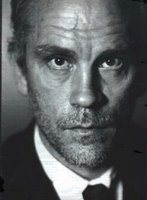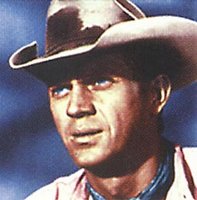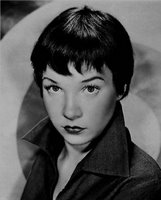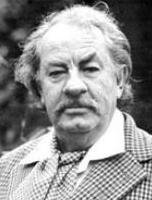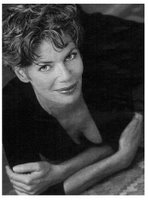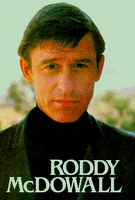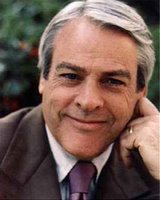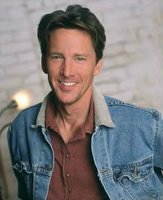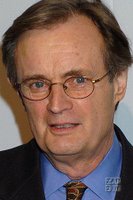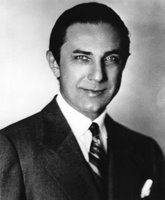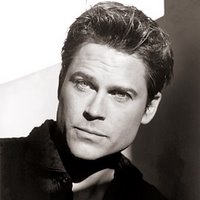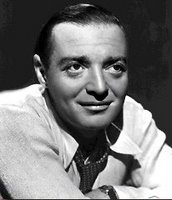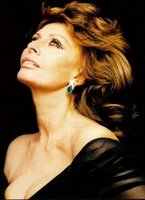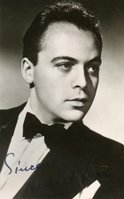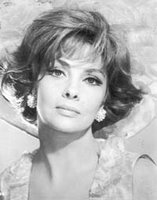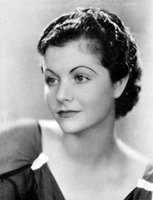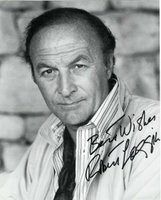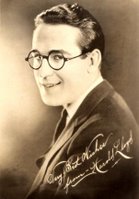
Harold Clayton Lloyd
1893 - 1971 (prostate cancer)
American born Burchard, Nebraska
Height 5' 10" (1.78 m) . Born in Buchard, Nebraska, USA to Elizabeth Fraser and J. Darsie "Foxy" Lloyd who fought constantly and soon divorced (at the time a rare event). He was nominally educated in Denver and San Diego high schools and received his stage training at the School of Dramatic Art (San Diego). Lloyd grew up far more attached to his footloose, chronically unemployed father than his overbearing mother. He made his stage debut at age 12 as Little Abe in "Tess of d'Ubervilles" with the Burwood Stock company of Omaha. On screen since 1913, starting with Edison Company in San Diego where he first met Hal Roach who would be the most influential person in his professional life. Then moved to Universal and then Mack Sennett. In the meantime Roach had inherited enough money to begin a small production company (Phun Philms, quickly renamed Rolin) and contacted Lloyd to star in the kinds of films he wanted to make: comedies. On the basis of a handful of self-produced shorts starring Lloyd, he managed to land a production contract with the U.S. branch of the French firm, Pathe, who literally paid Road by the exposed foot of film. Things were touch and go in the beginning, with improvised scenarios, outdoor shoots meaning Pathe rejected several of their first efforts, resulting in missed paydays. During his first contract with Roach he appeared in "Will E. Work" and then "Lonesome Luke" comedies, essentially cheap variations of Charles Chaplin's Little Tramp character. He abandoned the character in disgust in late 1917, adopting his "glasses" persona, an average young man capable of conquering any obstacle thrown at him. He began cementing his new image with Over the Fence (1917), that ushered in a prolific number of shorts through late 1921, often releasing 3 per month. Roach and Lloyd fought constantly; it's not so much that he didn't want to work for Roach, he didn't want to work for anyone - a trait he himself recognized from early on. To be fair, Roach was increasingly preoccupied with other stars (The "Our Gang" series was launched to huge success in 1922 and he also produced ''Snub' Pollard' shorts, among others) - and although he would always resent Lloyd's attitude and ultimate defection to Paramount, the loss of his major star wouldn't financially cripple him. Lloyd had his own quirks; he fell in love with his first co-star Bebe Daniels, who left him after it became apparent he was unable to make a commitment (the two would remain friends however). Lloyd, in his own way was decidedly complex: he could be professionally generous (often allowing debatably deserving directorial credit to members of his crew) while being notoriously cheap, yet he practiced little financial self control in anything that concerned himself. As his finances improved with age he happily indulged himself with a myriad of hobbies that would include breeding Great Danes, amassing cars, bowling, photography, high-fidelity stereo systems. He was open minded about homosexuals while being practically Victorian in his ideas about raising his daughters. He had an enormous libido and rumors abounded about illegitimate children and according to Roach, chronic bouts with VD. Most traumatically, he suffered the loss of his right thumb and forefinger in an accidental prop bomb explosion on August 14, 1919, just as his career was starting to take off. Lloyd would go to great lengths to hide his disability, spending thousands on flesh-colored prosthetic gloves and hiding his right hand whenever knowingly photographed, even long after his career ended. Upon his recovery he completed work on Haunted Spooks (1920) and successfully renegotiated his contract with Pathe, which began a career ascent that would rival Chaplin's (indeed, Lloyd was more successful, considering grosses on total output as Chaplin's output soon dwindled by comparison). Lloyd began feature film production with the 4-reel A Sailor-Made Man (1921). It began as a 2-reel short but contained, in his words, "so much good stuff we were loathe to take any of it out." It became a huge hit and continued to release hit features with ever increasing grosses but split with Hal Roach (who retained lucrative re-issue rights to his earlier films) after completing The Freshman (1925), one of his finest films. Pathe's U.S. operations quickly unraveled after their U.S. representative, Paul Brunet returned to France, and Lloyd made a decisive move (Roach himself would also leave Pathe, opting for a distribution deal with MGM - Mack Sennett, also distributed by Pathe, would be financially ruined). After weighing various attractive offers, Lloyd signed an advantageous contract with Paramount and racked up another hit with For Heaven's Sake (1926), one of his weakest silent features, yet it grossed an astonishing $2.591 million, nearly equaling "The Freshman."Lloyd could do no wrong throughout the 1920s, he consistently earned at or near $1.5 million per film with his Paramount contract and seemed invincible. He married his second co-star 'Mildred Davis' on February 10, 1923 and she retired from acting (replaced by Jobyna Ralston). He built a huge 32-room mansion he christened, "Greenacres" that took over 3 years to complete and the couple eventually had 3 children. His final silent film, Speedy (1928), shot on location in New York, was one of the few major hits of the sound transition period and remains (as do most of Lloyd's films) thoroughly enjoyable today. The advent of sound proved problematic for the comedian. His films were gag-driven and his writing team was wholly unaccustomed to converting their type of comedy into dialog. While his first sound effort (although began as a silent), Welcome Danger (1929) grossed nearly $3 million, by any standard it's a bad film, and marked a serious decline in Lloyd's screen persona; he became a talking comedian. His next talkie, Feet First (1930), included a climb reminiscent (but technically superior to that) of Safety Last! (1923) only being in sound, it contained every grunt and groan and proved painful to watch. With a gross of less that $1 million, Lloyd would see slightly over $300,000 -his smallest feature paycheck to date, and it became clear he was in trouble. Lloyd fought back with Movie Crazy (1932). Generally regarded as his finest talkie, it grossed even less than "Feet First." Lloyd left Paramount for Fox and suffered his first outright flop with his next feature, The Cat's-Paw (1934), which grossed $693,000 against a negative cost of $617,000 - resulting in red ink on a net basis. The miracle Harold Lloyd needed to salvage his career would never happen, but he refused to go down without a fight. Amazingly, the public was oblivious to his decline, and he was widely considered as one of the few silent stars to have made a successful transition through the first decade of sound. But to those within the industry, the numbers didn't add up. Back at Paramount on a 2-movie deal, Lloyd starred in The Milky Way (1936), a better-than-average comedy that pulled a world-wide gross of $1.179 million, but it had production budget exceeding $1 million, resulting in a $250,000 loss for the studio. Paramount was livid, demanding a personal guarantee from Lloyd on anything over $600,000 for his next film, Professor Beware (1938). The comedian soon discovered he couldn't complete the film within the required budget and did something unprecedented --for him at least-- he invested his own money. The final production cost was $820,275 - and it grossed a mere $796,385 - and as a result of a complex payment deal, Lloyd ended up personally losing $119,400 on its initial release (he would eventually recoup the bulk of his losses over the next 35 years). At the relatively young age of 45, Harold Lloyd's Hollywood career was over. Still immensely wealthy and always hyperactive, he sought out ways to occupy his time, dragging his kids on marathon movie nights all across Los Angeles and falling back on his many hobbies. He produced two pictures for RKO, A Girl, a Guy, and a Gob (1941), and a Kay Kyser vehicle, My Favorite Spy (1942) which must have looked good on paper but went nowhere at the box office. This ended his career as a producer. He would sign a $25,000 deal with Columbia in 1943 for a comeback project that never materialized. In 1944 Lloyd was approached by director Preston Sturges who envisioned a first-rate vehicle for him entitled, The Sin of Harold Diddlebock (1947). The production launched Sturges' new California Pictures, was financed by Howard Hughes, and initially released by United Artists. It which proved to be a nightmare for everyone concerned. Its $1.7 million production cost proved to be an insurmountable obstacle preventing it from profitability and the eccentric Hughes withdrew it from circulation, later retitling it "Mad Wednesday," re-editing and re-releasing it as an RKO feature in 1951 to an even more dismal box office. Lloyd would also zealously protect ownership of his material, successfully suing MGM over their unauthorized poaching of his gags on a 'Joan Davis vehicle, She Gets Her Man (1945) (sadly an action that would put the final nail in the professional coffin of the hopelessly alcoholic Clyde Bruckman). With his career at an end, Harold renewed his interest in photography and became involved with color film experiments. Some of the earliest 2 color Technicolor tests had been shot at Greenacres in 1929. In the late 1940s he was involved with color 3D still photography and often visited friends on film sets. At his death, his collection of 3D stills numbered 250,000 (the vast majority of which are nudes). Recently his granddaughter published an elaborate book of photos carefully excised from the collection. In the late 1940s Lloyd became an active member of the Shriner's (he'd joined originally in 1924) and an effective administrator for their Los Angeles crippled children's hospital. Harold is reported to be the only actor that owned most of the films he appeared in (sadly many of the earliest ones were destroyed in a nitrite fire in a vault at Greenacres in 1943). This ownership gave him the ability to withhold his films from being shown on television; Lloyd feared incorrect projection speed and commercials would damage his reputation. As a result, a generation of film fans saw very few of his films and his reputation was diminished. He did release 2 compilation films, of which the first, World of Comedy (1962) was very successful. Mildred descended into alcoholism in the 1950s and died in 1969. Lloyd occupied his time with extensive travel (he thoroughly enjoyed speaking engagements where he could interact with students on the subject of silent film) and continued his pathological passion for his hobbies through the end of his life. He became interested in high fidelity stereo systems and habitually ordered several record companies' entire annual catalogs, eventually amassing an LP collection rivaling most record stores. He enjoyed cranking music to volumes that caused the inlaid gold leaf on Greenacres' ceilings to rain down on anyone below. Conversely, he balked at modernizing anything inside the mansion, seeing improvements and redecorating as things that would survive him, and thus a complete waste of money. Lloyd was diagnosed with a recurrence of cancer by his brother-in-law, Dr. John Davis (Jack Davis, who starred in early "Our Gang" shorts) and died on March 8, 1971. His son, Harold Lloyd Jr. was an alcoholic homosexual and died soon afterward. Although Lloyd left an estate valued at $12 million (in 1971 dollars), he failed to make a provision for the maintenance of Greenacres, a blunder that would seriously complicate his estate. His granddaughter Suzanne Lloyd has been largely responsible for restoring his reputation of late, working to preserve his surviving films; many have been issued on HBO Video, Thames Video. Several have been superbly restored with new musical accompaniments and are shown periodically on TCM. Spouse Mildred Davis (10 February 1923 - 18 August 1969) (her death) 3 children.
The Sin of Harold Diddlebock (1947) , Professor Beware (1938) , The Milky Way (1936) , The Cat's-Paw (1934) , Movie Crazy (1932) , Feet First (1930) , Welcome Danger (1929) , Speedy (1928) , The Kid Brother (1927) , For Heaven's Sake (1926) , Ben-Hur: A Tale of the Christ (1925) , The Freshman (1925) , Hot Water (1924) , Girl Shy (1924) , Why Worry? (1923) , Safety Last! (1923) , Dr. Jack (1922) , Grandma's Boy (1922) , A Sailor-Made Man (1921) , Never Weaken (1921) , I Do (1921) , Among Those Present (1921) , Now or Never (1921) , Number, Please? (1920) , Get Out and Get Under (1920) , High and Dizzy (1920) , An Eastern Westerner (1920) , Haunted Spooks (1920) , His Royal Slyness (1920) , From Hand to Mouth (1919) , Captain Kidd's Kids (1919) , Bumping Into Broadway (1919) , His Only Father (1919) , Pay Your Dues (1919) , Count the Votes (1919) , Soft Money (1919) , He Leads, Others Follow (1919) , The Rajah (1919) , Be My Wife (1919) , Don't Shove (1919) , Heap Big Chief (1919) , Chop Suey & Co. (1919) , Count Your Change (1919) , A Jazzed Honeymoon (1919) , Never Touched Me (1919) , At the Old Stage Door (1919) , Just Neighbors (1919) , Billy Blazes, Esq. (1919) , Spring Fever (1919/I) , Off the Trolley (1919) , Swat the Crook (1919) , Pistols for Breakfast (1919) , The Marathon (1919) , Before Breakfast (1919/I) , Si, Senor (1919) , Ring Up the Curtain (1919) , Crack Your Heels (1919) , Young Mr. Jazz (1919) , Just Dropped In (1919) , A Sammy in Siberia (1919) , Next Aisle Over (1919) , The Dutiful Dub (1919) , Look Out Below (1919) , I'm on My Way (1919) , On the Fire (1919) , Ask Father (1919) , Going! Going! Gone! (1919) , Wanted - $5,000 (1919) , She Loves Me Not (1918) , Take a Chance (1918) , Hear 'Em Rave (1918) , Back to the Woods (1918/I) , Nothing But Trouble (1918) , Why Pick on Me? (1918) , Swing Your Partners (1918) , Bees in His Bonnet (1918) , Two Scrambled (1918) , Bride and Gloom (1918) , That's Him (1918) , Kicking the Germ Out of Germany (1918) , An Ozark Romance (1918) , Are Crooks Dishonest? (1918) , Somewhere in Turkey (1918) , Sic 'Em, Towser (1918) , The City Slicker (1918) , Fireman Save My Child (1918) , Two-Gun Gussie (1918), The Non-Stop Kid (1918) , Kicked Out (1918) , Hey There! (1918) , It's a Wild Life (1918) , Pipe the Whiskers (1918) , Follow the Crowd (1918) , On the Jump (1918/II) , Let's Go (1918) , Here Come the Girls (1918) , Look Pleasant, Please (1918) , A Gasoline Wedding (1918) , Beat It (1918) , Hit Him Again (1918) , The Lamb (1918) , The Tip (1918) , The Big Idea (1917) , Step Lively (1917) , Bashful (1917) , Move On (1917) , We Never Sleep (1917) , All Aboard (1917) , Clubs Are Trump (1917) , The Flirt (1917) , Love, Laughs and Lather (1917) , Rainbow Island (1917) , From Laramie to London (1917) , Bliss (1917) , Birds of a Feather (1917) , By the Sad Sea Waves (1917) , Pinched (1917) , Lonesome Luke Loses Patients (1917) , Over the Fence (1917) , Lonesome Luke's Wild Women (1917) , Lonesome Luke, Mechanic (1917) , Lonesome Luke, Messenger (1917) , Stop! Luke! Listen! (1917) , Lonesome Luke, Plumber (1917) , Lonesome Luke's Honeymoon (1917) , Lonesome Luke on Tin Can Alley (1917) , Lonesome Luke's Lively Life (1917) , Luke Wins Ye Ladye Faire (1917) , Lonesome Luke, Lawyer (1917), Luke's Trolley Troubles (1917) , Luke's Busy Day (1917), Luke's Lost Liberty (1917) , Lonesome Luke's Lovely Rifle (1917) , Luke's Shattered Sleep (1916) , Luke Locates the Loot (1916) , Luke's Fireworks Fizzle (1916) , Luke, Rank Impersonator (1916) , Luke's Movie Muddle (1916) , Luke's Newsie Knockout (1916) , Luke, Patient Provider (1916) , Luke, the Gladiator (1916) , Luke's Preparedness Preparations (1916) , Luke, the Chauffeur (1916) , Luke and the Bang-Tails (1916) , Luke's Speedy Club Life (1916) , Luke and the Mermaids (1916) , Luke Joins the Navy (1916) , Luke Does the Midway (1916) , Luke's Lost Lamb (1916), Luke, Crystal Gazer (1916) , Luke Rides Roughshod (1916) , Luke's Washful Waiting (1916) , Luke's Society Mixup (1916) , Luke's Fatal Flivver (1916) , Luke Laughs Last (1916) , Luke's Late Lunchers (1916) , Luke and the Bomb Throwers (1916) , Them Was the Happy Days! (1916) , Luke's Double (1916) , Lonesome Luke, Circus King (1916) , Luke Pipes the Pippins (1916) , Luke and the Rural Roughnecks (1916) , Luke Foils the Villain (1916) , Luke, the Candy Cut-Up (1916) , Lonesome Luke Lolls in Luxury (1916) , Luke Lugs Luggage (1916) , Lonesome Luke Leans to the Literary (1916) , Lonesome Luke, Social Gangster (1915) , Peculiar Patients' Pranks (1915) , Ruses, Rhymes and Roughnecks (1915) , A Foozle at the Tee Party (1915) , Ragtime Snap Shots (1915) , Great While It Lasted (1915) , Tinkering with Trouble (1915) , A Submarine Pirate (1915) , Bughouse Bellhops (1915) , Giving Them Fits (1915) , The Greater Courage (1915/I) , Fresh from the Farm (1915) , Some Baby (1915) , A Mixup for Mazie (1915) , Terribly Stuck Up (1915) , Spit-Ball Sadie (1915) , The Hungry Actors (1915) , Court House Crooks (1915) ,From Italy's Shores (1915) , Miss Fatty's Seaside Lovers (1915) , Their Social Splash (1915) , Love, Loot and Crash (1915) , Just Nuts (1915) , Willie Runs the Park (1915) , Hogan's Romance Upset (1915) , Beyond His Fondest Hopes (1915) , Close-Cropped Clippings (1915) , Pete, the Pedal Polisher (1915) , The Patchwork Girl of Oz (1914) , The Sandhill Lovers (1914) , Samson (1914) , Sealed Orders (1914) , Rory o' the Bogs (1913) , A Little Hero (1913/I) , His Chum the Baron (1913) , Cupid in a Dental Parlor (1913) , Hulda of Holland (1913) , The Twelfth Juror (1913) , The Old Monk's Tale (1913)
